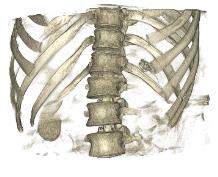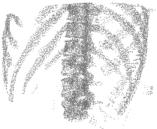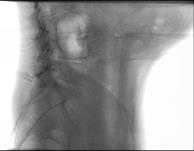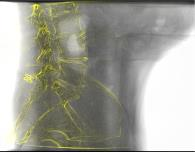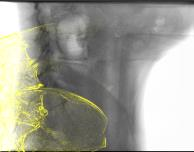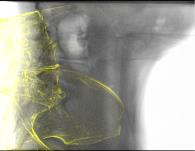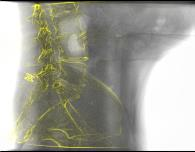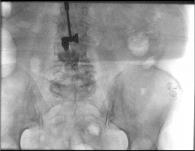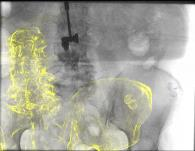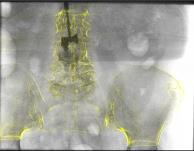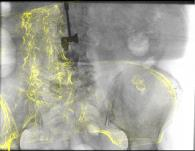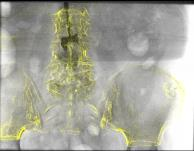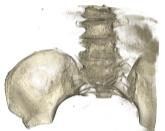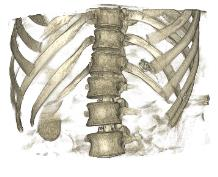Deep Learning-based 2D/3D registration methods are highly robust but often lack the necessary registration accuracy for clinical application. A refinement step using the classical optimization-based 2D/3D registration method applied in combination with Deep Learning-based techniques can provide the required accuracy. However, it also increases the runtime. In this work, we propose a novel Deep Learning driven 2D/3D registration framework that can be used end-to-end for iterative registration tasks without relying on any further refinement step. We accomplish this by learning the update step of the 2D/3D registration framework using Point-to-Plane Correspondences. The update step is learned using iterative residual refinement-based optical flow estimation, in combination with the Point-to-Plane correspondence solver embedded as a known operator. Our proposed method achieves an average runtime of around 8s, a mean re-projection distance error of 0.60 $\pm$ 0.40 mm with a success ratio of 97 percent and a capture range of 60 mm. The combination of high registration accuracy, high robustness, and fast runtime makes our solution ideal for clinical applications.
翻译:2D/3D深学习注册方法非常健全,但往往缺乏临床应用所需的注册准确性。使用与深学习技术结合应用的经典优化2D/3D注册方法的完善步骤可以提供所需的准确性。然而,这也增加了运行时间。在这项工作中,我们提议一个新的深学习驱动2D/3D注册框架,可以在不依赖任何进一步的完善步骤的情况下,为迭接登记任务使用端对端的注册框架。我们通过学习2D/3D注册框架的更新步骤,利用点对点对点对点对点对目标的更新精确度。更新步骤是利用迭接剩余完善光学流量估算学习的,与作为已知操作者嵌入点对点对点通信求解器相结合。我们提议的方法达到平均运行时间大约8秒,平均再预测距离误差0.60美元0.40毫米,成功率为97%,捕获范围为60毫米。高注册准确性、高度稳健和快速运行时间相结合,使我们的临床应用解决方案成为理想。

